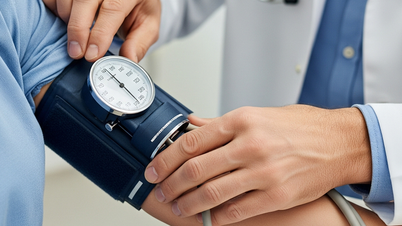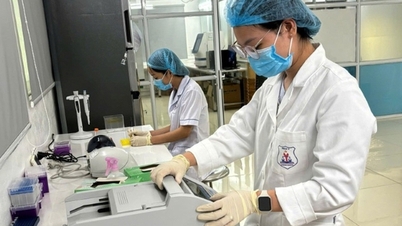Hyperglycemia is a normal phenomenon, originating from many causes. However, if the hyperglycemia occurs suddenly and frequently, it is a warning sign, according to the health website Medical News Today (UK).

Persistent fatigue despite adequate rest and frequent thirst are warning signs of abnormally high blood sugar.
PHOTO: AI
The U.S. Centers for Disease Control and Prevention (CDC) says the early symptoms of high blood sugar are often subtle and easily overlooked, especially in younger people. Here are some common but often overlooked signs of abnormally high blood sugar in people in their 30s.
Thirst, frequent urination
One of the earliest signs of abnormally high blood sugar is constant thirst and frequent urination. Because when blood glucose levels are high, the kidneys have to work harder to filter and remove excess sugar through urine, leading to dehydration and stimulating the feeling of thirst.
If this condition occurs frequently, it may be a sign that the body is gradually losing its ability to control blood sugar, meaning there is an abnormality in sugar metabolism.
Chronic fatigue, lack of energy
Feeling unexplained tiredness, even after adequate rest, is another sign of abnormally high blood sugar. When the body cannot use glucose efficiently for energy, cells do not have enough energy to function. The result is feeling tired and sluggish.
Blurry vision and difficulty concentrating are signs of high blood sugar.
This is a sign of acute hyperglycemia, which can appear in people who do not have diabetes but have temporarily high blood sugar, people with diabetes but have not been diagnosed or have poor control of the disease. If young people experience this sign, they need to check their diet and avoid consuming too much sugar.
Extremely high blood sugar causes swelling of the lens in the eye, leading to blurred vision, such as difficulty reading, working on a computer, or noticing changes in vision throughout the day.
Long-lasting wounds
This is no longer a temporary increase in blood sugar but a sign of a chronic metabolic disorder, which means it is in the severe pre-diabetes stage or has diabetes. Patients need to see a doctor immediately for treatment and guidance on controlling the disease, according to Verywell Health .
Source: https://thanhnien.vn/trong-do-tuoi-30-4-dau-hieu-canh-bao-duong-huet-cao-bat-thuong-185250607190241084.htm



![[Photo] President Luong Cuong talks on the phone with South Korean President Lee Jae Myung](https://vphoto.vietnam.vn/thumb/1200x675/vietnam/resource/IMAGE/2025/6/13/eee54a4c903f49bda277272b1dda68e8)































































































Comment (0)